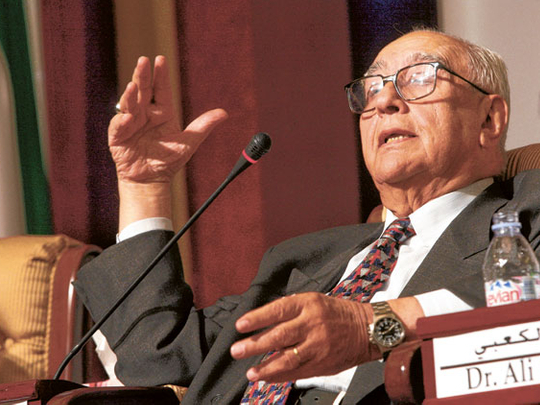
Abu Dhabi: A comprehensive, national education reform strategy was one of the recommendations issued at the conclusion of the Emirates Centre for Strategic Studies and Research's (ECCSR) second annual Education Conference yesterday.
"Among the concerns we had heard raised was how the UAE could reform its current educational programmes so that we are able to keep up with the global scientific and research community and what are the skills we must impart on our pupils so they can compete with international peers," Dr Jamal Sanad Al Suwaidi, director-general of the ECSSR, said.
One point that was highlighted throughout the two-day conference by Arab and Emirati participants was the need to make sure that a dedicated bilingual curriculum was developed so that while pupils learn English, it is not at the expense of their mother tongue.
Fewer scholars
"A national strategy that ensures that Arabic and English are taught comprehensively is essential as academic attainment and basic communication skills all depend on the effective teaching of language… we must also strive to enhance the quality of the education provided through adhering to international and local requirements as well as having a transparent teacher recruitment policy," Dr Al Suwaidi said.
He also noted that in developed countries, there are 4,300 scholars per million people, while the UAE only has 500. Dr Al Suwaidi highlighted that to increase the number of scholars present, pupils must be given opportunities to explore various fields.
"The UAE is among the leading countries that spend on education. This must be translated on the ground…so that we can highlight our commitment to quality by providing our children with the best tools they will need, not only in higher education settings but throughout their lives, we must strive to encourage them to explore their environment or even test what skills they may be interested in," he said.
Pupils' families and communities were also urged to take a more active role in the education of their young charges to help foster a sense of national pride and responsibility, among other traits.
"We must encourage positive external influences in any child's life, as they are the foundations for creating a productive and well balanced citizen. One of the most effective ways to do so is to encourage parents, neighbours and other members of the community to become active participants in pupils' lives and education," Dr Al Suwaidi said.











